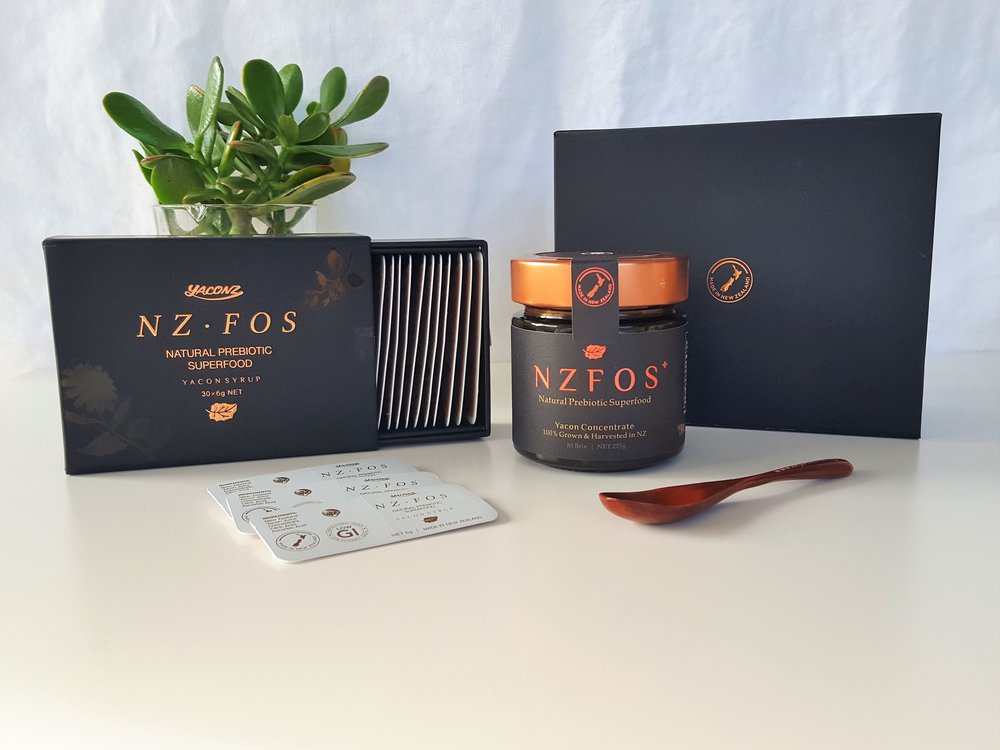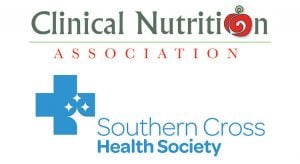What Is Yacon And How Can This Superfood Benefit Your Health?

What is Yacon?
Yacon comes from the Smallanthus sonchifolius plant which is a native to plant to South America. It has been a traditionally grown vegetable for thousands of years. This vegetable is also sometimes called the “diet potato”, which is thought to be related to the fructooligosaccharides (FOS) content. FOS are sugars which are found naturally in many types of plants, but never in concentrations as high as in yacon roots (1).
The yacon root is thought to be a good dietary supplement since it’s high content of FOS has long been used in folk medicine to help treat health conditions such as diabetes, improve gut health such as constipation, improve obesity and high cholesterol. A good quality yacon product you can find in NZ is NZFOS+.
Benefits of Yacon
-
Contains prebiotic fibre that benefits gut health
Prebiotics help to stimulate the growth and/or activity of good bacteria in the colon. Yacon FOS are completely fermented in the colon by a group of beneficial bacteria that form part of the intestinal microflora. These bacteria (especially the genus Bifidus and Lactobacillus) improve gastrointestinal function (2) and could also prevent and control constipation (1). -
Benefits of weight reduction – supporting obesity
Yacon has been hypothesized to exert anti-obesity and hypolipidemic effects by improving biochemical parameters and satiety (3). It may also have a minor appetite suppressing effect in the obese, thus reducing food intake which can also help with reducing weight (4). One study conducted with premenopausal, obese and slightly dyslipidemic women which showed yacon syrup intake (0.14g FOS/kg body weight) over 120 days showed improvements in fasting low-density lipoproteins (LDL) and visceral fat (5). -
Could help to prevent diabetes
Some studies raise the possibility that FOS from yacon has beneficial effects in treating obesity-related insulin resistance and type 2 diabetes mellitus. More studies need to be conducted in the area, but it’s an area of interest with yacon becoming more commonly known for its health-promoting benefits, partially on blood glucose. -
Could help reduce cholesterol and triglycerides
Yacon roots have been said to have hypoglycemia properties and have long been used by folk medicine as an effective alternative for diabetes treatment. One study that was published in October 2011 in “Chemico-Biological Interactions” found that when diabetic rats were supplemented with yacon root daily they had had lower levels of fasting plasma triacylglycerol, a triglyceride, and LDL, the “bad” cholesterol (6).
4 ways to enjoy Yacon from NZFOS+ Natural Prebiotic Superfood
- Add 1 tsp to a warm tea or drink once or twice daily (make sure it’s not boiling water otherwise you’ll lose a lot of the health promoting benefits of NZFOS+).
- Eat 1-2 tsp straight from the jar.
- Add 1-2 tsp on top of porridge or into a smoothie.
- Use it as a sweetener in homemade baking when making raw treats (it’s best not to heat the yacon syrup which his why it’s best used in raw baking)
References
- Hermann M, Freire I, Pazos C. Compositional diversity of the yacon storage root. In: Impact on a changing world: program report 1997-98. Lima (Peru): International Potato Centre (CIP); 1999. p. 425-32.
- Pedreschi R, Campos D, Noratto G, Chirinos R, Cisneros-Zevallos L, Andeanyacon root (Smallanthus sonchifolius Poepp.Endl) fructooligosaccharides as a potential novel source of prebiotics. J Argic Food Chem 2003;51:5278-84.
- Mohamed, S. Functional foods against metabolic syndrome (obesity, diabetes, hyoertension and dyslipideia) and cardio vascular disease. Trends Food Sci. Technol. 2014, 35, 114-128.
- Genta
- S, et al. Yacon syrup: beneficial effects on obesity and insulin resistance in humans. Clin Nutr. (2009)Campos, D.; Betalleluz-Pallardel, I.; Chirinos, R.; Aguilar-Galvez, A.; Noratto, G. Prebiotic effects of yacon (Smallanthus sonchifolius Poepp. & Endl), a source of fructooligosaccarides and phenolic compounds with antioxidant activity. Food Chem. 2012, 135, 1592-1599.
- Fiordaliso M, et al. Dietary oligofructose lowers triglycerides, phospholipids and cholesterol in serum and very low density lipoproteins of rats. Lipids. (1995

Hi I’m Natalie, a Registered Clinical Nutritionist, health influencer, blog writer & recipe creator. My own health complications prompted me to make positive diet & lifestyle changes, revitalize my health leading to a career change from the corporate world to nutritional medicine. I believe in a wholefoods approach to good health, focusing on simple strategies for modern, busy people.
Let's connect @nataliebradynutrition
The information on this website is not intended to replace the advice of your GP, a one on one relationship with a qualified health care professional and is not intended as medical advice. It is not intended for self-diagnosis, treat, cure, or prevent any disease. I encourage you to make your own health care decisions based upon research and in partnership with a qualified healthcare professional. The entire content of this website is based on the opinions of Natalie Brady, a qualified Holistic Nutritionist, unless otherwise noted. Click here for term and conditions of services.
Copyright © Natalie Brady Nutrition 2022 | Natalie Brady Nutrition Listed in Auckland's Top Nutritionists | Website by Fuel Media



